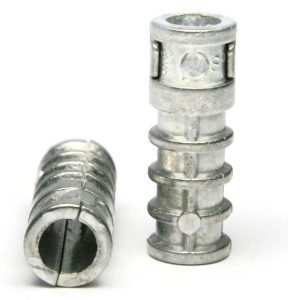fully threaded bolts suppliers
Ное . 16, 2024 16:51 Back to list
fully threaded bolts suppliers
Fully Threaded Bolts Suppliers A Comprehensive Guide
When it comes to construction, manufacturing, and various engineering applications, fully threaded bolts play a crucial role. These fasteners, characterized by their threaded length that spans the entire shaft, provide superior grip and strength. They are essential in creating robust connections in structures, machinery, and equipment. In this article, we will explore fully threaded bolts, their applications, and how to choose the right suppliers for your needs.
Understanding Fully Threaded Bolts
Fully threaded bolts, often referred to as all-thread bolts or tie rods, are designed with threads that cover the entire length of the bolt. This design allows for versatile usage, making them ideal for fastening two or more components together. Unlike partially threaded bolts, fully threaded variants offer a larger surface area for friction, enabling a more secure hold.
These bolts come in various materials, including stainless steel, carbon steel, and alloy steel. The choice of material typically depends on the specific requirements of the application, such as tensile strength, corrosion resistance, and environmental conditions. For instance, stainless steel fully threaded bolts are preferred in marine applications due to their resistance to rust and corrosion, while carbon steel variants are widely used in infrastructure projects due to their strength and cost-effectiveness.
Applications of Fully Threaded Bolts
Fully threaded bolts are versatile and find applications across many industries, including
1. Construction They are commonly used in structural steel applications, providing strength and stability to buildings and bridges.
2. Manufacturing In the assembly of machinery and equipment, fully threaded bolts ensure components are tightly secured.
3. Automotive These bolts are extensively used in vehicles, where they play a critical role in assembly and securing parts under high-stress conditions.
5. Electronics Fully threaded bolts are used in the assembly of various electronic devices, ensuring components are fixed securely.
fully threaded bolts suppliers

Choosing the Right Suppliers for Fully Threaded Bolts
Selecting the right supplier for fully threaded bolts is vital for ensuring the quality, reliability, and cost-effectiveness of your projects. Here are some factors to consider when choosing a supplier
1. Quality Assurance Ensure the supplier adheres to industry standards and certifications (such as ISO or ASTM). High-quality bolts are essential for safety and efficacy in applications.
2. Material Options A reputable supplier should offer a range of materials to meet various application requirements. Understanding the specific needs of your project will help you choose a supplier with the appropriate material offerings.
3. Customization If your project requires specific dimensions or thread patterns, consider suppliers that provide custom manufacturing options.
4. Lead Times Timely delivery is crucial in maintaining project schedules. Assess the supplier's lead times and their ability to meet your demands.
5. Reputation and Experience Look for suppliers with a solid reputation in the industry. Established suppliers often have the experience and expertise necessary to provide high-quality products and excellent customer service.
6. Price Competitiveness While cost is an important factor, it should not be the sole consideration. Ensure that you are getting value for your money, balancing quality with price.
7. Customer Support Reliable customer service can make a significant difference, especially if you face challenges or require assistance with your orders.
Conclusion
Fully threaded bolts are a vital component in numerous industries, offering unmatched flexibility and strength. By understanding their applications and choosing a reputable supplier, businesses can ensure they have the right fasteners to meet their needs. Ultimately, investing time in selecting the right fully threaded bolts suppliers can lead to enhanced project efficiency and reliability.
Latest news
-
High-Quality Panel Stud Bolt Reliable Panel Stud Bolt Factory & Suppliers
NewsJul.08,2025
-
High-Precision Fine Thread Locknuts Manufacturer & Supplier Custom Solutions
NewsJul.08,2025
-
PH Imperial Stud Bolt – High Strength Fasteners from Leading Supplier & Factory
NewsJul.07,2025
-
High-Quality Allen Wrench Bolts Leading Factory, Company & Suppliers
NewsJul.07,2025
-
Wholesale Ball Stud Bolt - High Quality Supplier & Factory Price Reliable Wholesale Ball Stud Bolt Company
NewsJul.06,2025
-
High-Strength Alloy Bolts Manufacturer & Supplier Quality Alloy Fasteners Factory
NewsJul.06,2025
